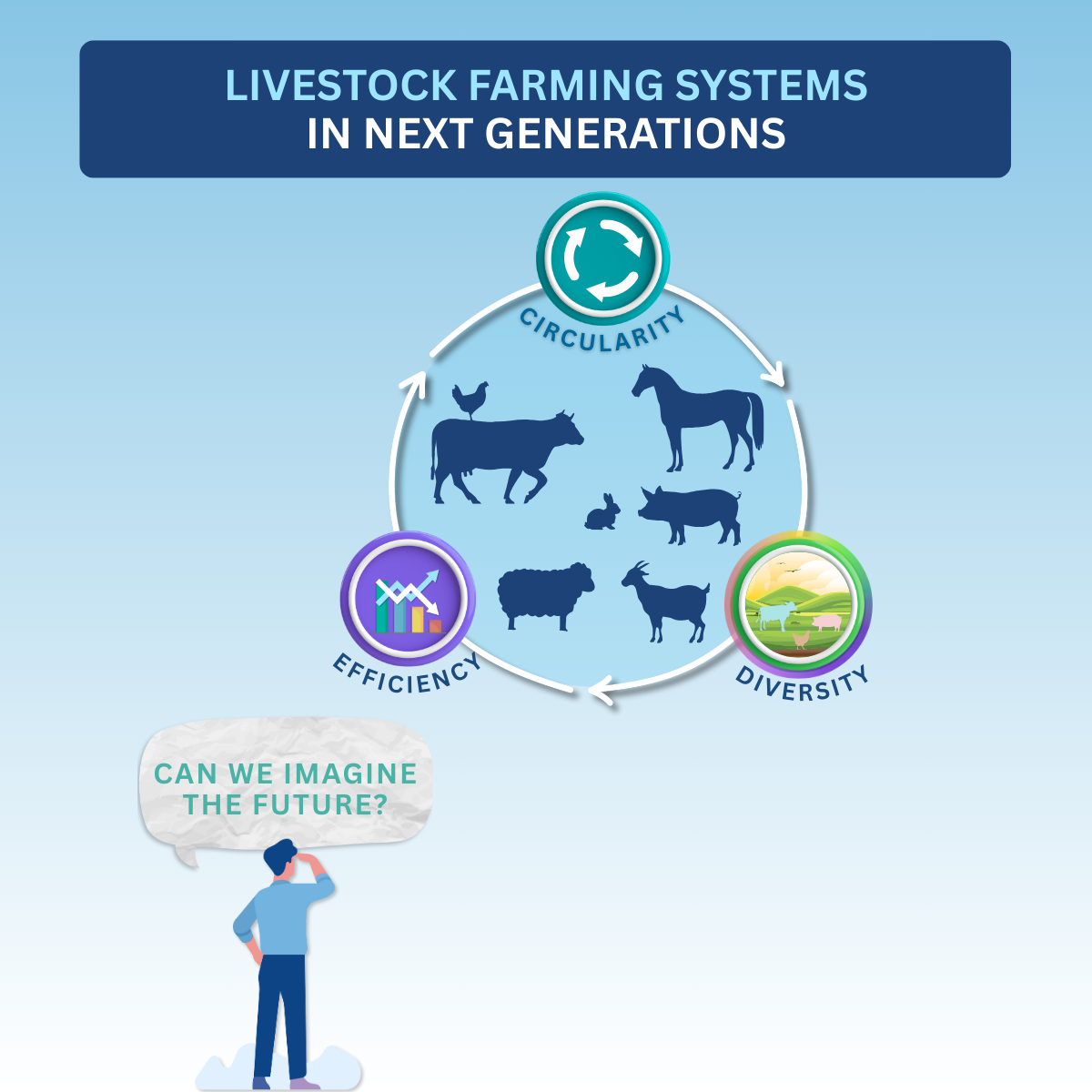
It is clear that livestock production plays an essential role in circular agri-food systems. However, livestock farming needs to operate under a lower use of resources, and minimise its environmental impact. There are no ‘one size fits all’ perfect solutions to improve livestock systems, instead all livestock systems must move along pathways of progress by adopting a systemic approach which combines (i) innovations and science-based solutions and (ii) transition to more sustainable systems and value chains, supported by fair, inclusive and innovative governance. We would like to recall that in the last two years we have been addressing what do we mean by sustainable livestock systems, and in 2024 we are looking at more than food, in alignment with our vision paper. We think it is interesting to move towards a future vision of livestock farming systems in EU: where and how should livestock systems adapt to continue and fulfil their essential role while ensuring an equilibrium with resources.
The theme should cover all the species and involve all the actors including farmers, farming related activities and suppliers, the by-product valorisation sector and the socio-economic aspects in enrolling in a collaborative discussion approach on where and how we see livestock farming systems in 2040, 2050, 2060. What will be the role of livestock in the next generations? How will farming systems evolve to ensure sustainability? Are we capable of imagining or designing the future livestock farming systems? What tools can we use to do so? We propose an integrated and multifactorial approach based on three potential Pathways of Progress for livestock that should be investigated simultaneously and with an integrated view:
- Circularity: Circularity concerns the reuse of various resources (e.g. biomass) to avoid wastes, and regeneration of ecosystems by closing natural cycles. Livestock farming plays a crucial role in circularity in all farming systems; animals are natural recyclers, they provide manures to fertilise soils or produce energy, can contribute to crop diversification, and provide some valuable ecosystem services more easily than the cropping sector. In addition, livestock farming improves circularity by acting in other production systems than just those dedicated to food.
- Diversity: A diversity of livestock systems, ranging from organic to grassland-based to intensive systems, gives greater strength and resilience to the EU food systems. There are different levels of biodiversity of livestock systems we need to take care of; genetic diversity as well as animal farming diversity. Considering biodiversity preservation, permanent grasslands are essential to maintain native flora and fauna, and food systems with livestock can contribute to creating a diversity of landscape mosaic, providing open habitats favourable for taxonomic and functional biodiversity and highly appreciated landscapes for other activities in addition to food production.
- Efficiency: Efficiency, sustainable intensification and agroecological practices have a role to play in the regeneration of livestock farming systems. Improvements in efficiency can be targeted at the animal, herd, farm or regional level, and it is important that improvements at any level are maintained at the system level. Methodologies to evaluate efficiency, impact assessment, product environmental footprint, etc.: Integrated system vision applied to livestock and/or LCA analysis.
In this theme the socio/economical aspects are an essential base and transversal area. Livelihood and economic growth aspects linked to livestock farming systems need to be addressed and developed. This is an important and challenging area…
REGISTER NOW!
15th ATF seminar
Wednesday 26 November 2025 - 9:00-13:00 CET
University Foundation
Rue d'Egmont 11 - 1000 Brussels (Metro Trône or Porte de Namur)
Remote participation possible
FREE EVENT!
There are 3 questions in this survey.